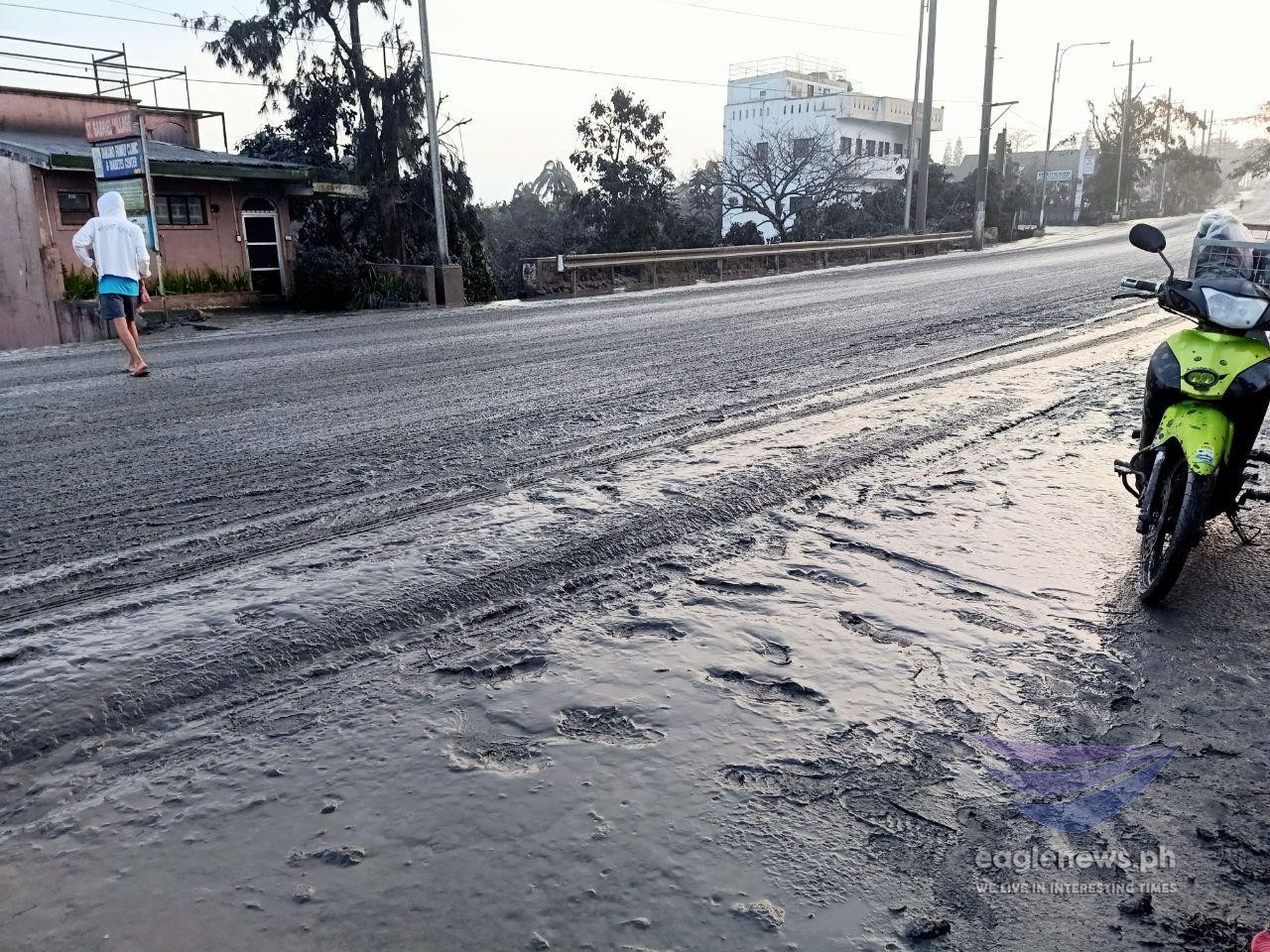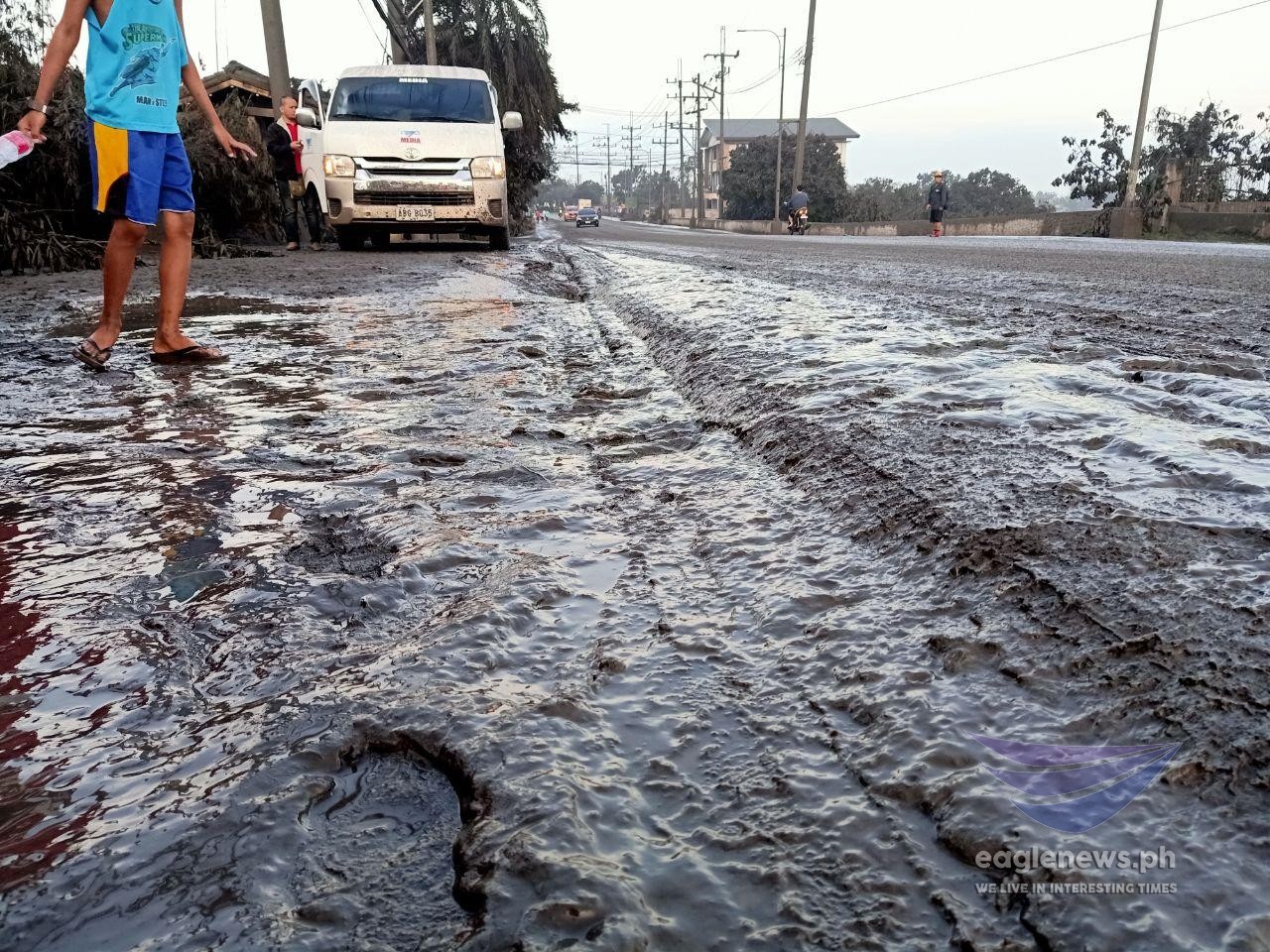

(Eagle News) — Footprints on gray mud covered road due to ashfall from Taal volcano can be seen in this photo taken by Eagle News Service reporter Earlo Bringas in Tagaytay City, on Monday morning, Jan. 13, 2020.
Residents of this picturesque city in Cavite provinces woke up with ashfall-covered landscape, a day after Taal volcano started spewing steam and ash and other pyroclastic materials on Sunday, Jan. 12, 2020.
The last time that this happened in Luzon was when Mount Pinatubo erupted in June 1991 which produced high-speed avalanches of hot ash and gas, as well as massive lahar floods and huge clouds of superheated volcanic material that changed the landscape of Central Luzon. Mt. Pinatubo’s eruption has been classified as the second largest volcanic eruption in the 20th century.
Taal volcano’s ashfall so far has reached areas in Southern Tagalog, Metro Manila and Rizal provinces, according the Philippine Institute of Volcanology and Seismology (PHIVOLCS). Affected residents have been advised to stay indoors, or to wear high grade face masks (N95) or wet towels and cloths for protection as inhaling the tiny ashfall particulars could cause respiratory problems, among others.







